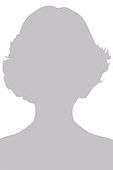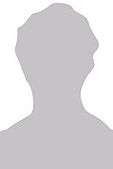Riojan parliamentary election, 1987
| | |||||||||||||||||||||||||||||||||||||||||||||||||||||||||||||||||||||||||||||||||||||||||
| |||||||||||||||||||||||||||||||||||||||||||||||||||||||||||||||||||||||||||||||||||||||||
| |||||||||||||||||||||||||||||||||||||||||||||||||||||||||||||||||||||||||||||||||||||||||
| |||||||||||||||||||||||||||||||||||||||||||||||||||||||||||||||||||||||||||||||||||||||||
The 1987 Riojan parliamentary election was held on Wednesday, 10 June 1987, to elect the 2nd Parliament of La Rioja, the regional legislature of the Spanish autonomous community of La Rioja. At stake were all seats in the Parliament, determining the President of La Rioja. The number of members decreased from 35 to 33 compared to the previous election.
The Spanish Socialist Workers' Party (PSOE) came first by winning the most votes and seats, but lost its absolute majority and suffered an important loss of support from 1983. As a result, a coalition government was formed between the second and fourth-most voted parties: the People's Alliance (AP), which lost votes and seats from the previous election as a result of the breakup of the People's Coalition, and the Progressive Riojan Party (PRP). Together, they had 15 seats, one more than the PSOE, and were able to get AP leader, Joaquín Espert, elected thanks to the decisive abstention of the Democratic and Social Centre (CDS), which became the third political force in the community with 4 seats and 10.8% of the share.
The AP-PRP coalition would only last until January 1989, however; from that date, the PRP would leave the coalition, resulting in a minority AP government until 1990, when a motion of censure against Espert would result in the PSOE returning to government, thanks to the vote of the PRP deputies and a CDS deserter.
Electoral system
The number of seats in the Parliament of La Rioja was set to a fixed-number of 33. All Parliament members were elected in a single multi-member district, consisting of the Community's territory (the province of La Rioja), using the D'Hondt method and a closed-list proportional representation system.
Voting was on the basis of universal suffrage in a secret ballot. Only lists polling above 5% of valid votes in all of the community (which include blank ballots—for none of the above) were entitled to enter the seat distribution.[1]
Results
 | ||||||
| Party | Vote | Seats | ||||
|---|---|---|---|---|---|---|
| Votes | % | ±pp | Won | +/− | ||
| Spanish Socialist Workers' Party (PSOE) | 57,178 | 39.64 | |
14 | | |
| People's Alliance (AP)[lower-alpha 1] | 50,179 | 34.78 | |
13 | | |
| Democratic and Social Centre (CDS) | 15,640 | 10.84 | |
4 | | |
| Progressive Riojan Party (PRP) | 9,212 | 6.39 | |
2 | ±0 | |
| People's Democratic Party (PDP) | 4,721 | 3.27 | New | 0 | ±0 | |
| United Left (IU)[lower-alpha 2] | 3,478 | 2.41 | |
0 | ±0 | |
| Workers' Party of Spain–Communist Unity (PTE-UC) | 1,400 | 0.97 | New | 0 | ±0 | |
| Blank ballots | 2,452 | 1.70 | |
|||
| Total | 144,260 | 100.00 | 33 | | ||
| Valid votes | 144,260 | 98.63 | |
|||
| Invalid votes | 1,998 | 1.37 | | |||
| Votes cast / turnout | 146,258 | 72.50 | | |||
| Abstentions | 55,480 | 27.50 | | |||
| Registered voters | 201,738 | |||||
| Source: Argos Information Portal | ||||||
Notes
- 1 2 Compared to the People's Coalition results in the 1983 election.
- ↑ Compared to the Communist Party of Spain results in the 1983 election.

